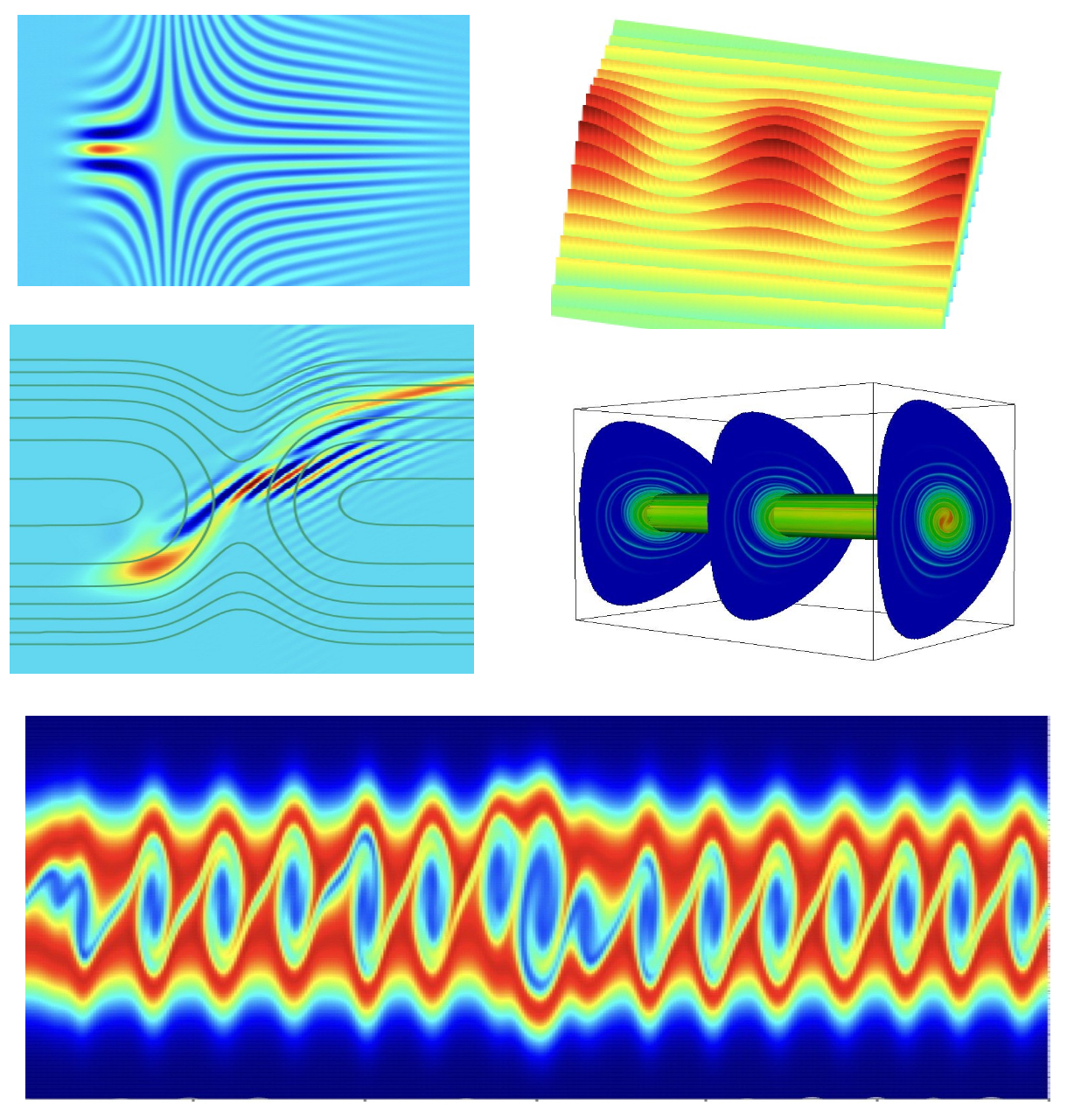Head of the team : Francis Filbet. Team members.
A broad spectrum around the study of PDEs:
The PDE team brings together researchers and teacher-researchers working mainly in the field of deterministic applied mathematics. The team's main themes are developed around four themes.

-1. - Deterministic modeling: collective dynamics, self-organization, particle models, kinetic models, fluid models, mean-field limit, hydrodynamic limit, geometric and topological aspects, study of hybrid models coupling macroscopic and microscopic models. The preferred applications concern the physics of thermonuclear fusion plasmas (ITER project, Vlasov, Boltzmann, Fokker-Planck equations), quantum mechanics and life sciences (evolutionary biology and ecology, population dynamics) and medicine (organ development);
-2. - Numerical Analysis and Scientific Computing: data assimilation; numerical analysis of Helmholtz equations, scattering, non-linear wave equations, kinetic and hyperbolic equations; development of high-performance numerical methods (multi-scale, or preserving asymptotics), quantum graphs, sparse grid methods, HPC computing;
-3. - Qualitative study of PDEs: Schrödinger equation with nonlinearity, entropy minimization, noise regularization method, front propagation for Fisher-KPP type equations, nonlocal models; regularity of parabolic PDE solutions, trace problem and boundary regularity for hyperbolic systems and degenerate parabolic equations;
-4. - Control Theory: controllability of degenerate parabolic equations, method of moments, boundary controllability, biorthogonal families, inverse problems, Carleman estimates, bilinear controllability.
The problems studied are largely motivated by interactions with biology (population dynamics, imaging, neuroscience) and physics (geophysics, fluid mechanics, structure mechanics, quantum physics, plasmas) and involve a wide range of equations of different natures (kinetic, dispersive, elliptic, hyperbolic and parabolic) as well as free boundary problems. The numerical approximation of these models calls upon various techniques, designed in particular to take into account specific difficulties (asymptotic preserving methods, high order methods, edge conditions), and goes together with implementing computational codes and carrying out simulations.
Self-interactions of the team
It is structured around the MAC (Modeling, Analysis, Computation) seminar, held on Tuesday mornings. This seminar is designed to accommodate presentations on all of the team's topics of interest. Speakers strive to present their work to a diverse audience. This seminar is particularly important for convincing younger colleagues (but not only them) to take an interest in topics that go beyond their own research field.
This broad-based seminar is complemented by regular working groups on more specialized topics or areas of shared interest with other teams or laboratories at the Toulouse site. These include:
—- The monthly "Mathematics and Biology" seminar, organized by G. Faye and N. Savy, in collaboration with the Probability and Statistics/Optimization teams.
—- The "Climate" working group (approximately six sessions), organized by J.-F. Coulombel. The objective is to describe the modeling tools used to study the climate and its current evolution. This includes understanding how the models used in IPCC reports are constructed, and presenting the numerical experimental protocols used to estimate the anthropogenic contribution to trends in past observations or to produce climate projections for the coming decades.
—- The "Control" working group (approximately five sessions per year) brings together colleagues from the EDP team and other colleagues from IMT or LAAS.
Interactions with other teams of the IMT :